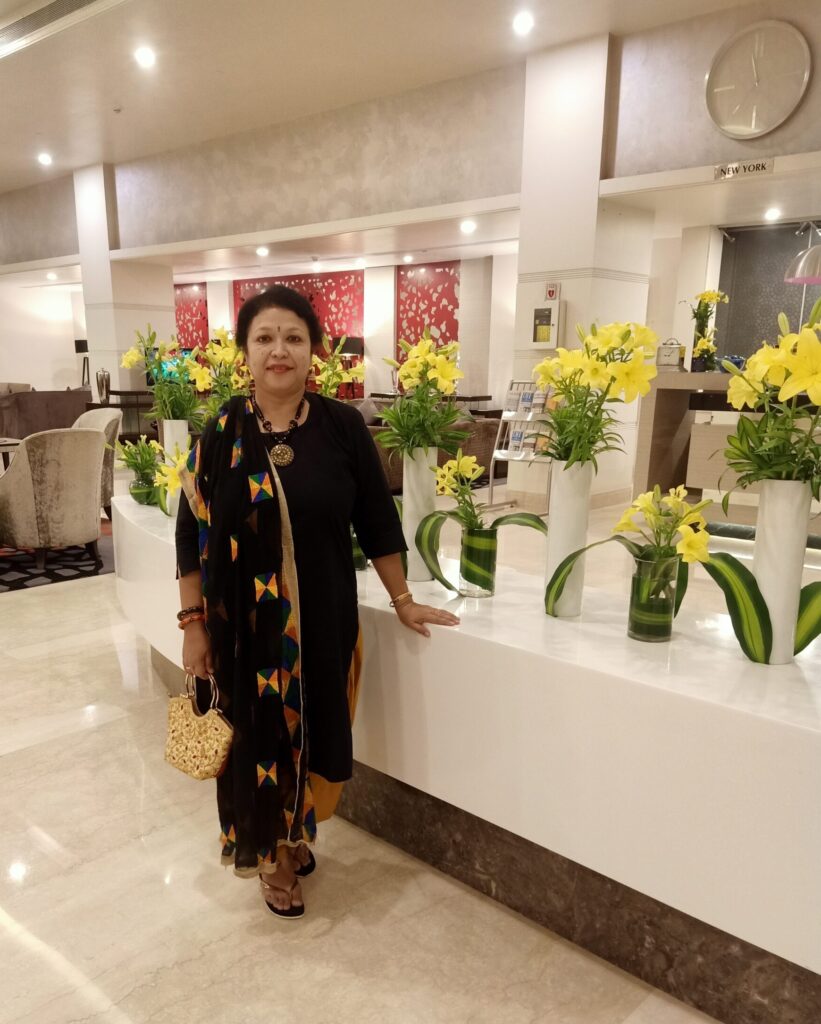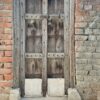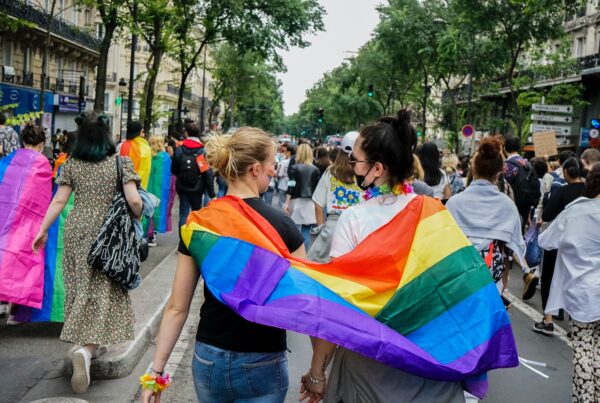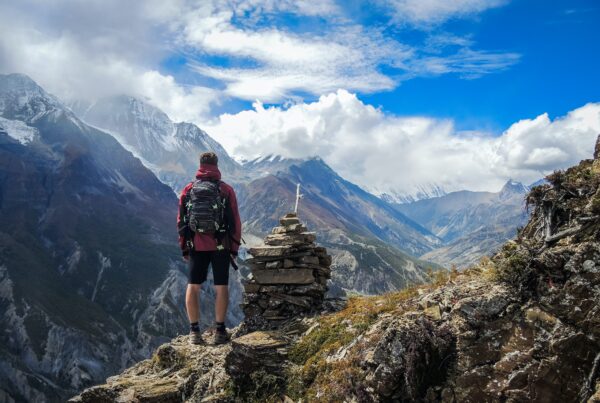This was written as part of a competitive event held at ArtoonsInn in September, 2022, based on the prompt: Write a story around any mysterious disappearance in history.
The story emerged a topper and received the Swan Card of Excellence.
12 December, 2015
In the 28 summers that I’ve walked this planet, I’ve taken more wrong turns than right! Found greater verve in stark isolation than in a buoyant crowd. How else can I explain what is common between my bustling life in silicon city Bangalore, and a boundless, golden expanse in faraway Rajasthan? Between life unfolding in bits and bytes in my swish studio apartment, and an unforgettable experience in an ancient, desolate village? Nothing! Except for a fervid wanderlust…a yen for adrenaline…that binds the two, and belies my clean-shaven, spectacled, geeky look. An almost reverential urge to unravel an enigma, that has forced me out of my snug, salubrious surroundings, and plonked me amidst the sweltering Thar Desert!
********
It all started about a couple of months back. The tedium of life as a quintessential ‘techie’ pushed me to a tipping point where I developed an anathema for all things urban. I, decidedly, needed a hiatus! I channelised my inner nomad and examined my bucket list of must-visits. Jaisalmer, doused in its timeless beauty, historic splendour and architectural marvels, eventually served as my travel lodestar. Topping the ambitious line-up of tourist attractions was Kuldhara, the haunted village of Rajasthan, that had ceased to exist one fine morning, exactly two centuries ago! Raw, earthy adventure – wasn’t that always a pick-me-up for my world-weary soul? I could wait no more!
As always, the omniscient Google came to my rescue! If the photographs and reviews were anything to go by, Kuldhara appeared steeped in mystery and intrigue! In fact, quite a few travellers swore they had heard and witnessed unexplained sounds and sightings there! After some rigorous browsing and planning, I finalised my itinerary for Jaisalmer. As the airplane tore through the skies, I inhaled deeply. The strains of a hoary man playing the timeless Kesariya Baalma Morey on his weathered violin, amidst the amber sand dunes, were already wafting into my senses.
*******
The December sun is blazing down on us, as my smart watch announces 1pm. I’ve travelled about 18 kilometres from Jaisalmer in a rickety tempo traveller that hurtled down the uneven streets on its wobbly wheels.
I pay the nominal entry fee and step inside what is touted as one of the most enigmatic and haunted sites in India. An endless stretch of chrome and saffron greets me as a dry, sabulous air hits my skin and nostrils. Some scattered desert vegetation punctuates the yawning wastelands. The travel guide doles out facts in a singularly insipid monotone — established in the thirteenth century by the Paliwal Brahmins, Kuldhara was once home to a prosperous tribe of people for about 600 years before they abandoned the village in 1815.
A sense of awe and intrigue washes over me as I walk past the brick-and-clay houses, razed to rubble — mute spectators to centuries of history and human synergy. A large temple at the centre and a couple of houses elsewhere, have been renovated and restored, to give visitors a peek into the original Paliwal way of living. I examine a brick here…caress a tender peepal shoot in a niche there…as my mind tries to simulate the centuries-old pulsating village ethos! Derelict walls, the brown arched colonnades, the spacious courtyards lying in splendid ruin – they still retain the grandeur of a lost era. Each deserted stairway seems to whisper a tale of love. Or loathing, perhaps?
After wandering among the ruins for about three hours, my feet feel leaden. As the late afternoon sun casts long, inclined shadows, I take a break. A few remaining tourists are clicking pictures before the site closes for the day. The mercury is already headed south and a cool wind starts blowing. Sitting in the shade of what might have been a porch once, I glug mouthfuls of water from my sipper. Fishing out an energy bar from my backpack, I start munching. The candied fruits, nuts and oatmeal dunked in caramelised sugar, offer a much-needed succour to my drained body. The proverbial forty winks tempt me and I shut my eyes.
A subtle movement at very close quarters snaps me out of my catnap. I’m startled to find an aged man with a grizzled, unkempt beard sitting right next to me, drawing long, dense puffs on a battered chillum. Dressed in a flowing dark robe that has probably seen better days, he has a bright, green turban tightly wound around his head. The kitschy, beaded neckpieces adorning his chest could put a rainbow to shame. Holding a forked wooden staff in one hand and a bunch of long peacock plumes in the other, he looks like a mendicant who has apparated from an antiquated land of fantasy and folklore!
Noticing my befuddled expression, he breaks into a mischievous, knowing grin.
“Alakh Niranjan!” He booms in a raspy voice.
Here comes the miss-and-blink sidekick from a C-grade Bollywood flick!
“How do you fare, Sahib? You don’t look like you belong to these parts?”
“Umm…yes, Baba, I’m a tourist here from Bangalore. Not sure if you’ve heard the name,” I offer helpfully. “Been exploring these ruins for quite a while. Got tired, so just catching my breath!”
“A tourist, you said? I knew it! All you people from modern cities come to visit us here…looking for answers, trying to find peace!”
The triumphant tone in his voice is hard to miss.
“So tell me Sahib, do you like our place? Would you like to see some more? Come, let me show you what no one else has seen before!”
Now don’t tell me Kuldhara has found a brand ambassador in this quirky fakir!
I roll my eyes heavenwards and immediately regret it – the Baba is looking straight at me, a blasé expression trying to mask his displeasure.
“Come, take a puff,’ he offers me his chillum pointedly.
“No Baba, I don’t smoke, thank you.” I deliberately coat my words with a layer of finality.
“Oh, don’t worry, this won’t harm you at all! A few deep puffs and you’ll be back on your feet in no time, Sahib!” This time, there’s an urgency lacing the Baba’s voice. “Come on, take it…I insist!”
He thrusts the pipe into my hands and closes my fist around it. I’m shocked at his gumption!
“I shall have none of this…to hell with you and your chillum, Baba! Please don’t test my patience. I’m gonna get out of here, right now! Leave my hand!”
My voice sounds shrill as I try to jerk off his gnarled hands and rise. Surprisingly, I can’t! The frail Baba is gazing at me intently. His eyes have a mysterious hypnotic glitter that holds me in a trance. I slump against the wall, powerless to move or even utter a word. My eyelids feel heavy…an unprecedented surge of drowsiness engulfs me. Wisps of thick, multi-hued mist and haze rise from nowhere and swirl before my eyes. The breeze steadily turns frigid, and through all this, I spot the Baba’s smiling face – inscrutable, mystical, oracular. The heaviness now invades my brain…my senses threaten to leave me. And finally, I plunge into what is often described in the pages of philosophy as that deep, lightless realm…the abyss of oblivion…the sphere of supreme slumber! Is this death? Perhaps! Only time will tell….
***************
The euphonic tinkling of anklets reaches my ears; my eyes flutter open.
Looks like I’m alive? But is this for real? Let me check…ouch! That was a nasty pinch!!
My limbs hurt – even sitting up and rising are a struggle. Swinging my arms and legs a few times, I dust my clothes and look around. I’m standing right outside a hut. My backpack is nowhere in sight.
The topography looks vaguely familiar. Good heavens! This, indeed, is Kuldhara, yet again! The same flat-topped sandhills, the limestone rocks, the thorny, stunted bushes of khajri and acacia. But why does it all look so different? To my greatest astonishment, I realise, the village is now teeming with life and activity… it’s no longer the desolate, decrepit village I visited earlier! The animated laughter from some passing village belles warms my heart. At a distance, I see a group of people, sitting in the shade of a giant banyan tree, engrossed in conversation. I’m completely flummoxed – which era have I been transported to? How did I reach here?
Before I can seek an answer, I spot my accidental friend, the old mendicant. He looks just the same with that enigmatic (read moronic) smile pasted on his face!
Has he followed me here? What a pest! Or wait! Is he the one responsible for my current state? I must get to the bottom of this!
“Sahib, we’re now in the Kuldhara village of 200 years ago! But don’t look so agonised, I’ve made sure no one hears or sees you! And please don’t try to escape – you are completely bound by my spell,” he finishes with a hint of gloating, his mesmeric eyes still twinkling bright! I try to run; my feet remain rooted to the ground.
As a child I had always wished for the gift of invisibility…looks like it’s finally come true, twenty years too late! Invisibility and immovability, what a complete package!
Caught in a no-win situation, I pledge to comply. The charm eases a little; my feet feel free.
Where have I landed myself? Can I ever get back to my own world, my own people, away from this historical quagmire?
With a resigned heart, I saunter away. Rows of opulent, russet houses with private wells and courtyards, dot the barren landscape. Some of the men are seen tending sheep, cattle and camel; some are skilled potters, while others grow crops like jowar, wheat and gram — they are the providers. I stand agape, admiring their colourful ensemble — the swarthy men attired in bright long jama, their vibrant Mughal–style headgear and a kamarband, completing the traditional look. The svelte, dusky women are an epitome of grace, with their mirror-work lehenga and bandhej jama. The well-crafted jewellery speaks of their financial wellness. They are the nurturers, the peace-keepers of the family. Their biggest possession, the Baba mentions, is their honour and their feisty sense of self-worth. My presence within their closest proximity ruffles no feathers. For them, I’m probably just a passing gust of breeze –amorphous and impotent!
As the day bleeds into night, the simple village folk retire to the comfort of their homes. Tiny oil lamps glow in the dark, marking each abode of peace. The entire village is ensconced in a cocoon of love, warmth and deep slumber.
I return to my hut, the only one in Kuldhara. A fresh pile of traditional clothes is awaiting me. The Baba has laid out a meal fit for a king! I don’t ask him the whys and hows. Unordinary situations defy any rationale, especially when they unfold in an alternate universe like ours. I finish my meal in silence and lie down on the ramshackle charpoy here.
The next few days and nights elapse in a similar vein. The Baba’s eyes follow me everywhere, all the time.
One morning, the village seems abuzz with commotion and fear. Men and women huddle in small groups, speaking in hushed tones and casting furtive glances over their shoulders. Suddenly, the air is rent with the angry stomping of hooves, the aggressive clang of metal, and bloodthirsty battle cries. A tall, muscular, horse-borne warrior with a dense, tousled mop of mahogany, and a jagged scar running across his weather-beaten face, bursts upon the scene. A band of ten equally murderous henchmen, brandishing shining swords, rally around him. Circling us a couple of times, the men finally rein in their sturdy steeds. The latter neigh aloud.
“Jai Madhava! So how are things in this sleepy little hamlet?” The man’s booming voice drips with sarcasm. “I hope you all remember, it’s time to increase your monthly levy. Henceforth, it will be double the yield and twice the gold that you’re paying now!”
The villagers let out a collective gasp! A few manage to put up a feeble protest.
“HukumSa, please have mercy…we are already reeling under exorbitant taxes, how can we pay any more…”
“The rains have been erratic for the past two years. The Kakni River, our wells, canals, everything is drying up…”
“My daughter is getting married, I’m already grappling with dowry woes…”
The last entreaty brings a sudden change to the tyrant’s demeanour (he’s the Prime Minister, I gather). Leering at a beautiful, adolescent girl in the crowd, he snarls, “But MukhiyaSa, you had pledged Bijli to me, so how can you betroth her to someone else?!”
He turns to address the villagers in a menacing tone.
“Coming puran maasi, there’ll be a grand wedding in Kuldhara. Between me, Diwan Salim Singh, and the petite Bijli, our respected village headman’s daughter. You all are invited!” Salim Singh’s eyes smoulder with an in-bred lust. “No questions asked…my decision is final and binding! Jai Madhava!!”
Swishing his sword wildly in the air, he rides off with his men, leaving behind a cloud of dust, and a cache of dashed dreams!
I twitch my palms in helplessness. In these few days, I have forged a mystifying (if purely one-sided) connect with these unpretentious, humble villagers. I approach the ubiquitous Baba hovering nearby, for a solution. ‘Wait and watch’ is the cryptic reply I receive!
The next few days witness an unusual calm in the village. Very few people venture outdoors.
Tonight, it’s unusually warm and still. I keep tossing and turning on my charpoy, a strange restlessness gnawing at my heart.
Is this the proverbial lull before a storm? I do not know. Except that the moon is shining exceptionally bright and big tonight! Aah, it’s the full moon tomorrow!
Around midnight, a loud ding-dong jolts me awake! I rush out of the hut, with the Baba at my heels. Following the sound, I reach a temple.
Gosh! Isn’t this the same temple that I saw in real-time Kuldhara? But why are the priests so overwrought…their faces flushed, eyes blazing, temples throbbing! And what’s this intense ritual happening at such an unholy hour?
Closer to the dwellings, I observe the others stockpiling essentials, farm equipment, fodder and sundry items into the numerous bullock and camel carts that have been lined up. Only muffled whispers and a gentle shuffling of feet are heard. Eventually, the women and children troop into the carts, followed by the smaller animals like dog, goat and sheep. A few matronly ladies are seen protectively flanking young Bijli.
I turn to the Baba, my dropped jaws and racing heart seeking an answer.
“Sahib, the Paliwals are leaving Kuldhara, abandoning their ancestral village for good,” he replies in a small, shaky voice. “What else can they do? They are aristocratic Brahmins – they have neither the weaponry nor the aggression to fight the evil Salim Singh! But through their potent chanting and invocation, they’ve cursed Kuldhara to remain uninhabited forever! And the curse will work, Sahib!”
My chest constricts, my palms turn sweaty, at these chilling prophetic words.
After a few final moments of wistful longing, the lamps of all the houses are doused. As the entire village plunges into a sepulchral silence, the menfolk set out on foot, leading the caravan across and over the shimmering dunes of gold and gravel. The tintinnabulation of the bells around the animals’ neck and the flickering flame of the lantern dangling from each cart, add to the beauty of the moon-drenched, star-spangled night. Accompanying them, is a wandering minstrel, playing a haunting symphony on his fiddle. The melancholic tune, soused in hiraeth, is carried across the shimmering sand dunes by the susurrating winds. I stand heavy-hearted, osmosing the mystical episode, my despondent gaze following these 1500 people, till they melt into the horizon and disappear beyond, never to be found again!
“Sahib!” The gentleness in the Baba’s voice surprises me. “Your time here is over. Go back to where you belong. Tell your people about the beauty and glory of our village…sing paeans of our selfless, valorous clan…do Kuldhara proud!”
Once again, my eyelids droop, my vision turns nebulous, and my soul moves light-years away from the smiling Baba!
*********
Voices float in from afar. I open my eyes to the sight of turbaned faces curiously peering over me. Someone offers me water…I empty the bottle in seconds! Rubbing my groggy eyes, I rise. The huge arched gateway, leading to the Kuldhara precincts, towers majestically right opposite me. I check the date – 13 December, 2015.
It’s been only a day here? Would anyone believe it if I narrated how I travelled 200 years back in time…explored the unplumbed depths of history…and returned, enriched and enlightened, from a magical journey!
Spotting my backpack, I briskly examine its contents. My camera, phone, ID card, wallet, credit cards – all tumble out. I sigh in relief! But wait, what’s that peeking? A rundown chillum, a few colourful beads, and a resplendent peacock plume – relics of my fortuitous brush with history? My eyes widen in disbelief!
Later in the day, I leave Jaisalmer for my next destination. Sitting in the cab, I decide to journal my esoteric experience. The words flow effortlessly as I start typing on my laptop:
A village throbbing with life…a community driven by righteousness and solidarity…they abandoned their home and hearth and embraced the unknown, just so they could live together in peace, with their honour unsullied!
———————-
Author’s Note: Very little documented information is available on the village of Kuldhara and its people. It is also contradictory in nature. Barring Salim Singh, all the characters in this story have been inspired by history and folklore. The author has resorted to Magic Realism, as a literary tool, to aid the process of world-building and shine a light on what might have happened on that mystical night.
Reference Links: 1. https://en.m.wikipedia.org/wiki/Kuldhara
Prompt: Write a story around any mysterious disappearance in history.
Glossary:
Kesariya Baalma Morey – a popular Rajasthani folk song
Chillum – a traditional, handmade smoking pipe
Alakh Niranjan – a synonym for the Creator, often used by Oriental ascetics
Fakir – a hermit or mendicant
Jama – a tunic-like garment
Kamarband – a waist belt
Lehenga– a long, flared skirt traditionally worn by Indian women
Bandhej – a colourful tie-and-dye fabric, very popular in Rajasthan
Charpoy – a light bedstead
HukumSa – a respectful term used in Rajasthani nobility to address a lord or master
MukhiyaSa – a respectful term used in Rajasthan to address the village headman
Puran Maasi – full moon
Jai Madhava – an invocation to Lord Vishnu
*****************








